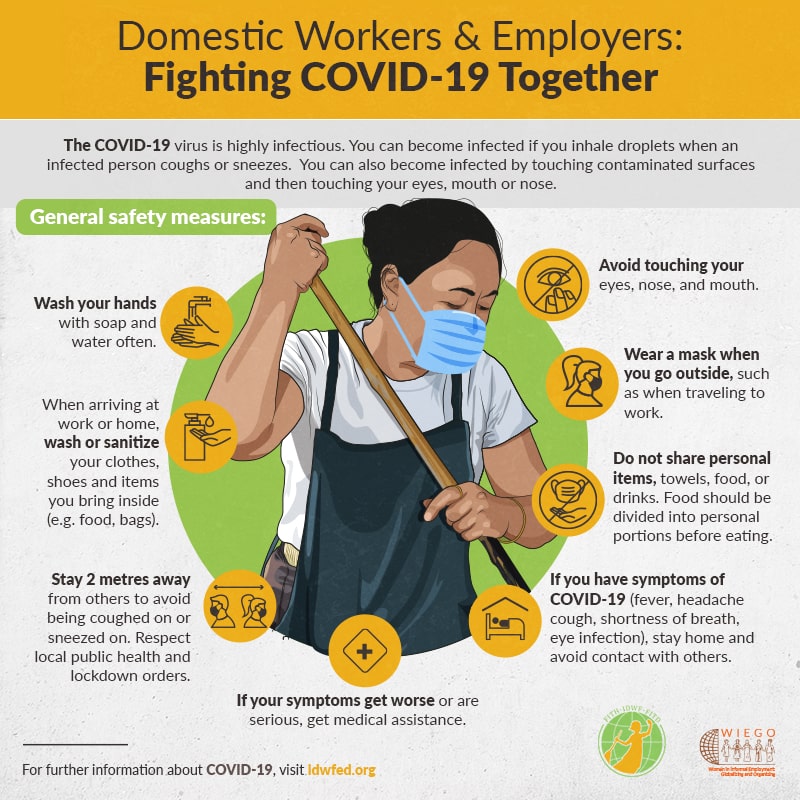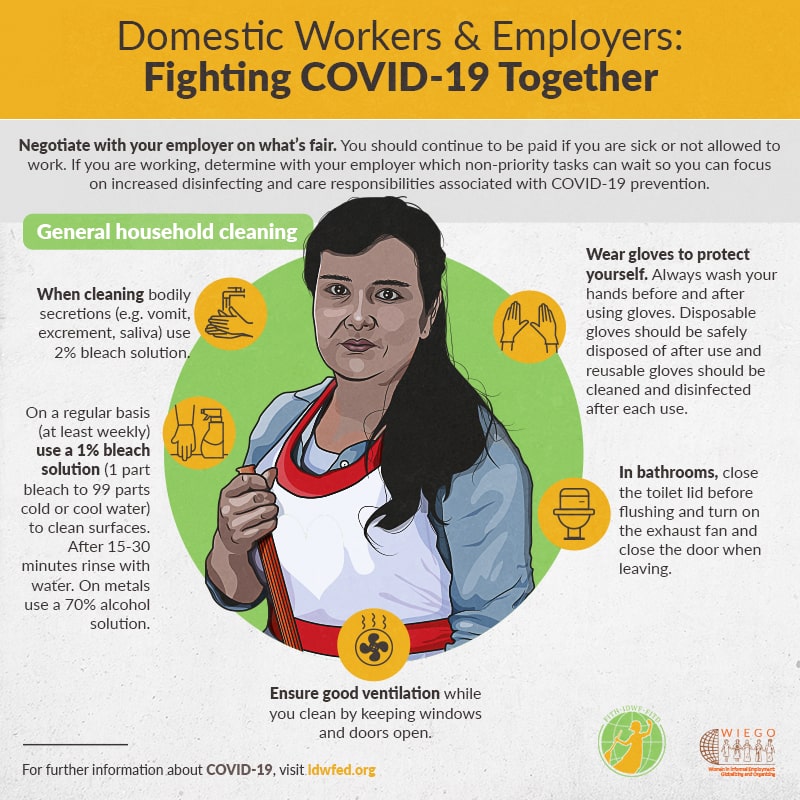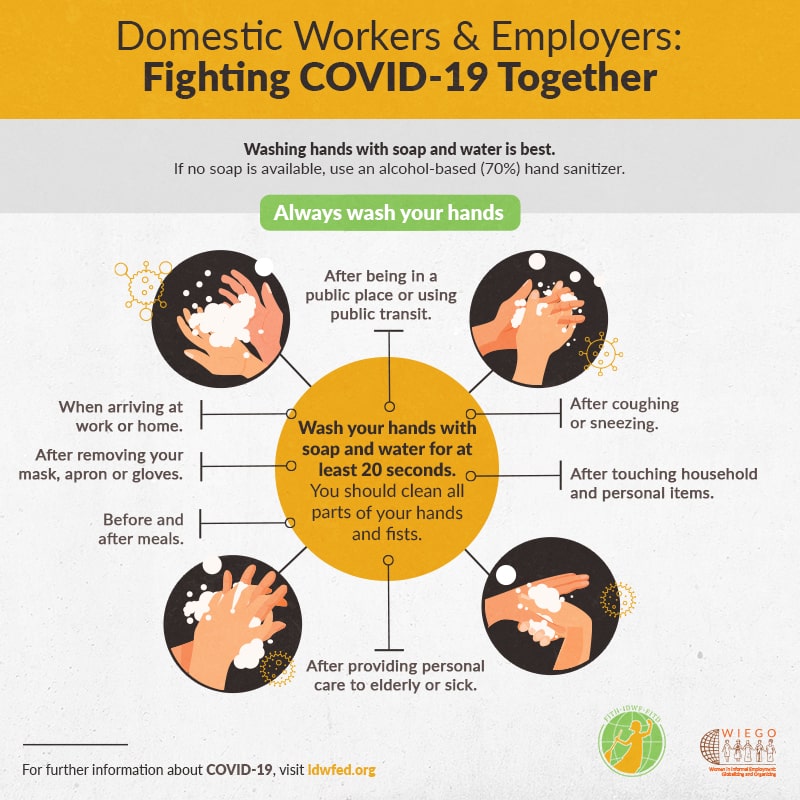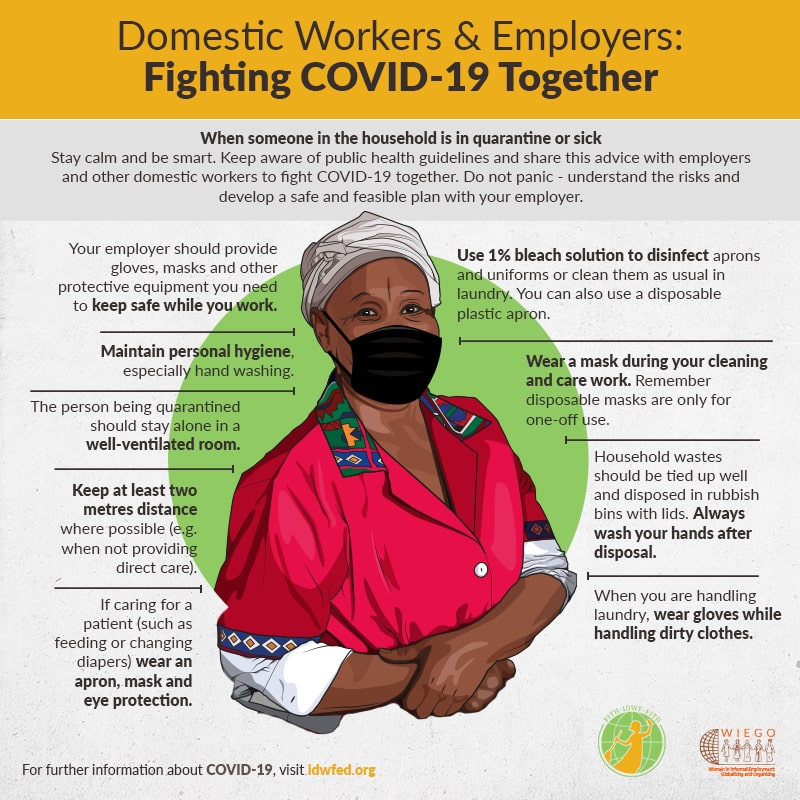Key facts about COVID-19
The Coronavirus, COVID-19, is highly infectious. It spreads through contact with people who already have the virus, usually through inhaling infected droplets when a person with the infection coughs or sneezes. You can also get infected by touching contaminated surfaces and then touching your eyes, mouth or nose.
The symptoms include fever, cough, diarrhea and shortness of breath. They may appear 2-14 days after exposure to the Coronavirus. Some people who have contracted the virus might not show symptoms.
The reported illness ranges from mild to severe. The virus may cause severe illness and sometimes death, in case of a weaker immune system. Older people and people with underlying medical problems like cardiovascular disease, diabetes, chronic respiratory disease, and cancer, are particularly at risk.
- Maintain 2m distance from other people suffering from acute respiratory infections, with symptoms like coughing, sneezing, runny nose, to avoid breathing the droplets with the COVID-19 virus.
- Wear a mask when you go outside.
- Wash your hands as often as possible to kill the virus especially after being in a public place, using public transit, removing your mask or gloves, touching items that others have touched, sneezing or coughing and before eating.
- Always avoid touching your eyes, nose, and mouth with unwashed hands.
- If you are sick with symptoms of COVID-19 (fever, cough, diarrhea, shortness of breath), stay home and avoid contact with those you live with.
- If your symptoms get worse, seek medical assistance.

- Always respect local public health and lockdown measures.
- Use a solution of room temperature water to 1 part bleach solution to clean surfaces, regularly, at least once a week. After 15-30 minutes rinse with water. On metal surfaces, use a 70% alcohol solution.
- When cleaning bodily secretions, including vomit, excrement and saliva, use 2% bleach solution.
- Ensure good ventilation while you clean by keeping the windows and doors open.
- Wear gloves to protect yourself.
- In bathrooms, close the toilet lid before flushing and turn on the exhaust fan and close the door when leaving.

- After removing mask
- After touching household and personal items or providing direct care for the elderly or sick
- If no soap is available, use an alcohol-based (70%) or hand sanitizer

- Be informed of public health guidelines and share this advice with employers and other domestic workers to fight COVID-19 together.
- Understand the risks and develop a safe and feasible plan with your employer. There is no reason to panic if you are in control.
- Maintain personal hygiene, especially washing your hands.
- The quarantined person should stay in a well-ventilated room.
- Keep at least a one-meter distance between yourself and others.
- When caring for a someone, such as feeding or changing diapers:
- wear an apron, mask and eye protection.
- Use 1:99 diluted bleach to disinfect used aprons and uniforms or clean them as usual in the washing machine.
- You can also use a disposable plastic apron.
- Wear a mask during your cleaning and care work. Remember masks are only for one-off use. Do not reuse it and always wash your hands after removing it.
- Do not share towels, personal items, lunchboxes, food, or drinks. No one should be given or asked to eat leftover food. Food should be divided into personal portions before eating.
- Household wastes should be tied up well and disposed in rubbish bins with lids. Always wash your hands after disposal.
- Wear gloves when you are handling laundry.
- Employers shall inform the workers if they have been in contact with anyone with a suspected or confirmed case of infections.

- Before putting on a mask, clean hands with alcohol-based hand rub or soap and water.
- Cover mouth and nose with a mask and make sure there are no gaps between your face and the mask.
- Avoid touching the mask while using it; if you do, clean your hands with alcohol-based hand rub or soap and water.
- Replace the mask with a new one as soon as it is damp and do not reuse single-use masks.
- Remove the mask from behind. Do not touch the front. Discard immediately in a closed bin. Clean hands with alcohol-based hand rub or soap and water.
- It is necessary to wear a mask if you are coughing or sneezing.
- Masks are effective only when used in combination with frequent hand-cleaning with alcohol-based hand rub or soap and water.
It is normal to feel overwhelmed, distressed and fearful during the pandemic. But the responsibility to combat the virus if collective, and does not fall on you alone. Communicate about COVID-19. Everyone shall take part in fighting against it. Share your concern and worries with the others, so you understand the risks collectively. It is important for employers to discuss and come up with a safe and feasible plan with you.
Social distancing is important. Know your capacity and limit, as when you are aware of possibilities, risks, and protection measures, it will be easier to stay calm: be alert but do not panic. Follow the public health guidelines. Employers shall respect that you are trying your best to protect yourself and your families’ safety.
Health and Safety Protocols for Domestic Workers
COMING SOON
